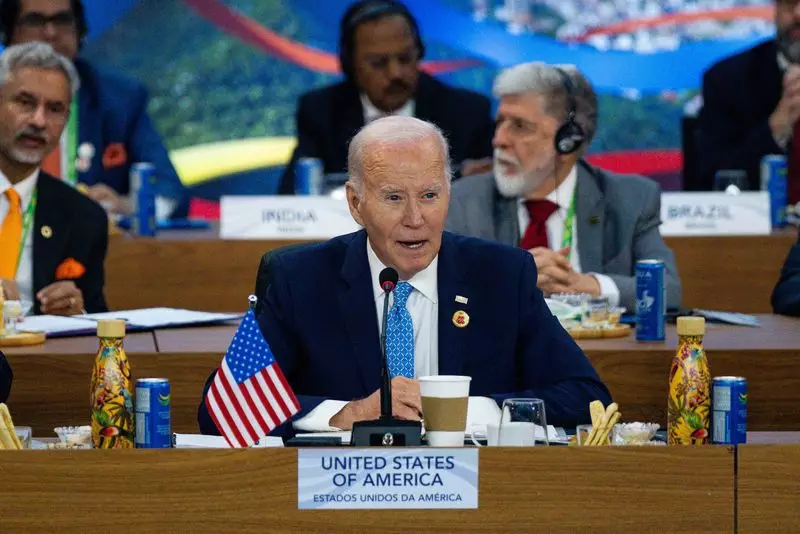In an ambitious move to bolster global development and assist the world’s most impoverished nations, U.S. President Joe Biden recently announced a groundbreaking pledge of $4 billion to the World Bank’s International Development Association (IDA). This announcement, made during a closed session at the Group of 20 summit in Rio de Janeiro, marks a significant escalation in U.S. support for international aid. The pledge is not merely a number; it symbolizes the Biden administration’s commitment to addressing pressing global inequalities and fostering sustainable development, particularly in nations beset by economic hardship and environmental crises.
This new commitment sets a record for U.S. contributions to the IDA, exceeding the previous $3.5 billion pledge made during the last replenishment in December 2021. Such a remarkable increase signifies a shift in prioritizing international aid and reflects a growing acknowledgment of the urgent needs faced by the poorest countries. According to sources involved in the discussions, the renewed commitment was welcomed as a necessary response to escalating challenges observed in various parts of the world, notably Africa, which grapples with crippling debt, climate-induced disasters, and lingering conflicts.
However, the longevity and reliability of this pledge remain uncertain, particularly with the impending transition to President-elect Donald Trump’s administration. Trump has previously proposed reductions in foreign aid, leading to questions about whether his administration will maintain Biden’s commitment. Given the often volatile nature of U.S. foreign aid policies and funding appropriations, there exists a genuine concern regarding how Congress will respond to this pledge once Trump assumes office.
During the G20 summit, Biden’s announcement was bolstered by promises of additional initiatives, including a bilateral clean energy partnership with Brazilian President Luiz Inacio Lula da Silva. This approach is a part of Biden’s broader strategy to integrate environmental sustainability with economic support, reflecting an understanding that the challenges faced by poorer nations are multifaceted, involving economic, social, and environmental components.
The IDA replenishment process occurs every three years, with a pledging conference slated for December 6. World Bank President Ajay Banga, aiming for a revitalized funding target, has highlighted that the IDA must raise a minimum of $120 billion to adequately respond to the rising demands from developing nations. The ambitious goal implies a need for increased commitments from other countries, as the fiscal pressures on these nations become more pronounced.
Biden’s unprecedented pledge is a monumental step towards enhancing global partnerships and addressing the dire needs of the poorest countries. However, it hinges on future political support and collective international action to ensure that the world’s most vulnerable populations receive the support they desperately require. The coming months will be critical in shaping the trajectory of U.S. foreign aid policy and its implications for global development efforts.

